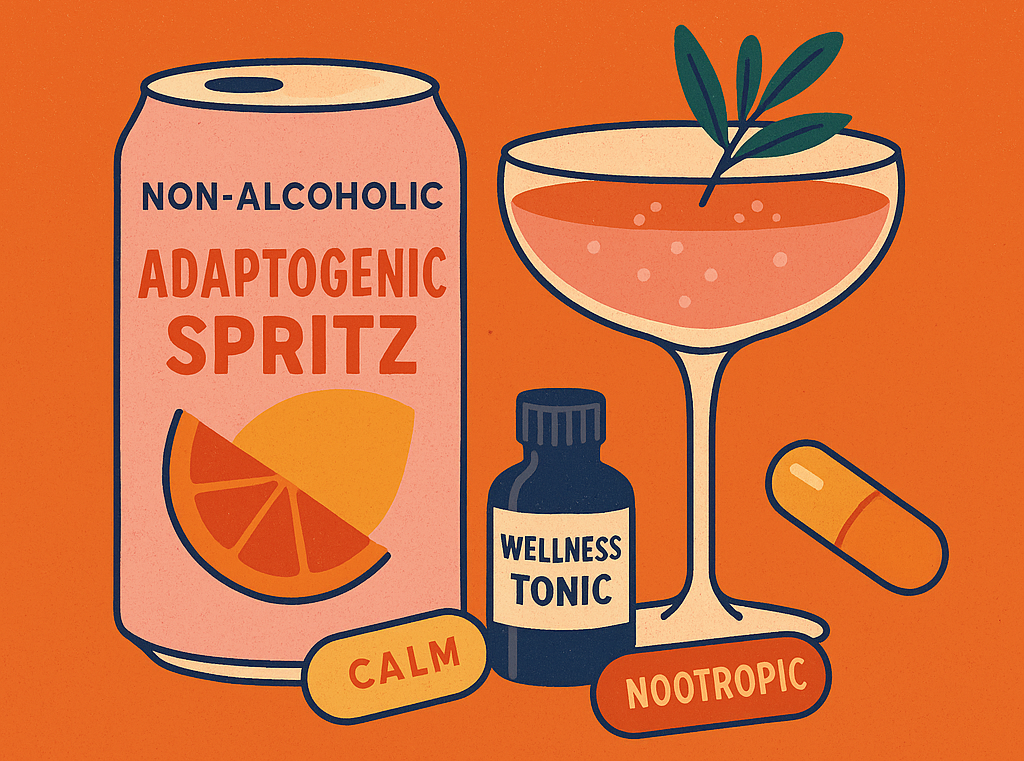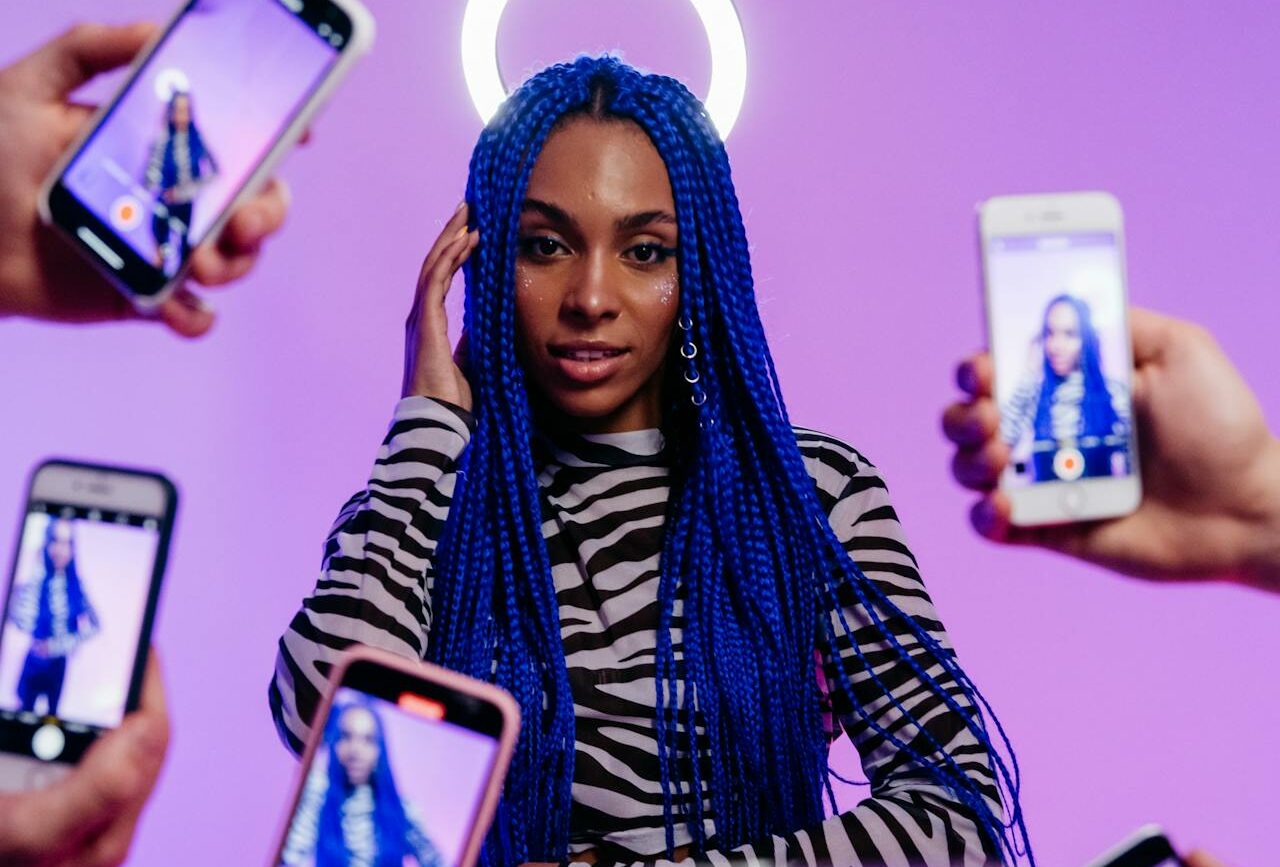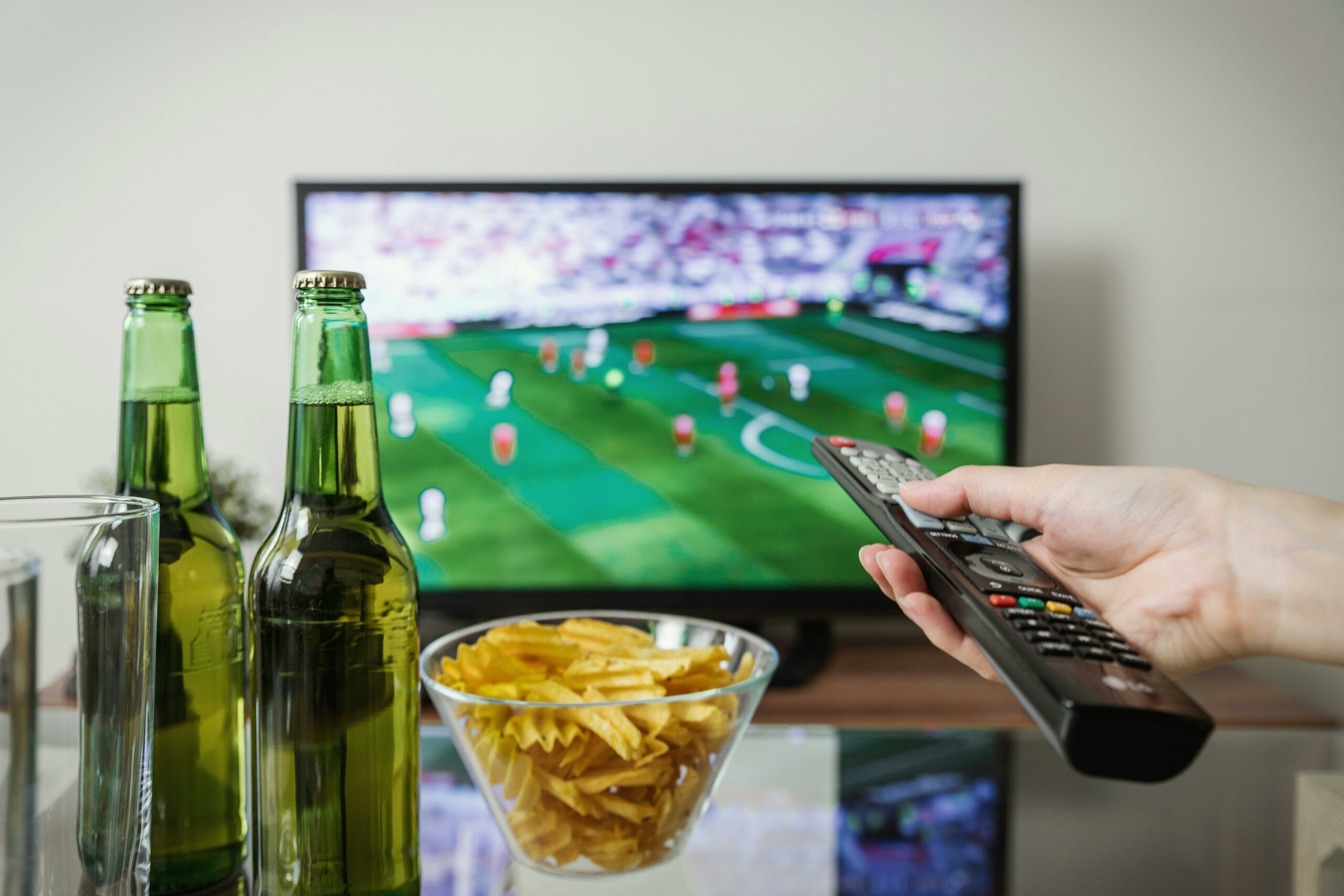The NoLo trend is booming, but is it really about wellness? We unpack how brands rebranded sobriety as a status symbol—one overpriced spritz at a time.

Need a drink?
When we wrote the FADS Book, we told you the people brewing up marketing campaigns for alcoholic beverages know what massive money makers their products are, and that they know their products have huge behavioral and emotional impacts on consumers.
We reviewed how the industry has used gender, nostalgia, insecurity and other vulnerabilities to get us drunk and how they’re using the way they’ve shaped our behaviors around social drinking to sell us non-alcoholic beverages as older people quit drinking and as younger generations don’t really start…
And then the pandemic hit
As stress mounted to sometimes impossible levels, the Washington Post recently reported that alcohol-related deaths skyrocketed 25% during the pandemic and drinking among women shot up 41% in the first several months.
There seems to be some acknowledgement that some of the spike is due to thinking “what else are we gonna do” it seems, and “might as well have a drink.” But the worry is that as we regain access to healthier coping mechanisms, many may continue to drink instead.
Just before the Washington Post reported on troublesome pandemic drinking, the University of Pennsylvania warned us that a recent study showed that even “light-to-moderate alcohol consumption was associated with reductions in overall brain volume.” An alarming study, particularly with its larger-than-average data set to pull from.
Successful women focus on the sober life
Towards the end of this month, after all this bad news about alcohol, MSNBC reported on four women with the solution. These women each talked about the ways they’ve been lured by marketing in the alcohol industry, and how that impacted them in their every day lives. So they did the unthinkable for any non-alcoholic. They quit drinking.
“Alcohol is supposed to be a celebration substance. Alcohol is supposed to be a stress relieving substance. Alcohol is that thing that’s there to make you feel better when nothing else does.” said Amanda Tice.
Must be a really big problem if it’s being covered in the news right? Thank goodness MSNBC is concerned about women becoming stronger, healthier and more empowered. But wait – did you see the two mocktail companies getting the shout out in the last part? Don’t look like a downer when you give up drinking, ok? You should be sure you grab a mocktail to keep blending in.
Panic in the wine industry
We continue to believe that despite the pandemic increase, Boomers and Gen X age will, over time, cut back on drinking. And we can’t count on Millennials and Gen Z to fill the gap. The wine industry knows this, they follow demographic drinking trends very closely, and they don’t feel good about what they see. One analyst told the New York Times:
“In prior reports, we noted that the falling interest in wine among younger consumers, coupled with the encroaching retirement and decreasing wine consumption of baby boomers, poses a primary threat to the business. That issue has yet to be addressed or solved, and the negative consequences are increasingly evident.”
So they’re continuing to target the elders, encouraging them to keep on drinking (it keeps you young and sassy), while doing their best to reach out to younger drinkers.
Some things never change
Of course, to reach younger audiences, they’re using some of the tried-and-true tactics we brought up in the FADS book with interesting characters and celebrities leading small “unique” brands. And with a rise in digitally-native social media managers we’re seeing alcohol brands get better at targeting youth through more engaging social campaigns.
In the future, we should watch for these brands to do a better job at touting environmentalism and sustainability to reach younger consumers. Perhaps we’ll also see a resurgence of the old “wine isn’t drinking, it’s sophisticated, and grown up.” And of course we expect to see continued investment in low and no alcohol options by those also heavily invested in the alcohol industry. We should also watch how digital marketing may or may not become regulated as we learn more about how these companies target younger and more vulnerable people online and offline too.
They've got their hooks in you.
FADS rise quickly, burn hot and fall out. They say you're fat, you're no fun, you need to relax, and you might even die alone.
In fact, FADS bank on the fact that you already believe all of that.
Ready to learn how it works?


